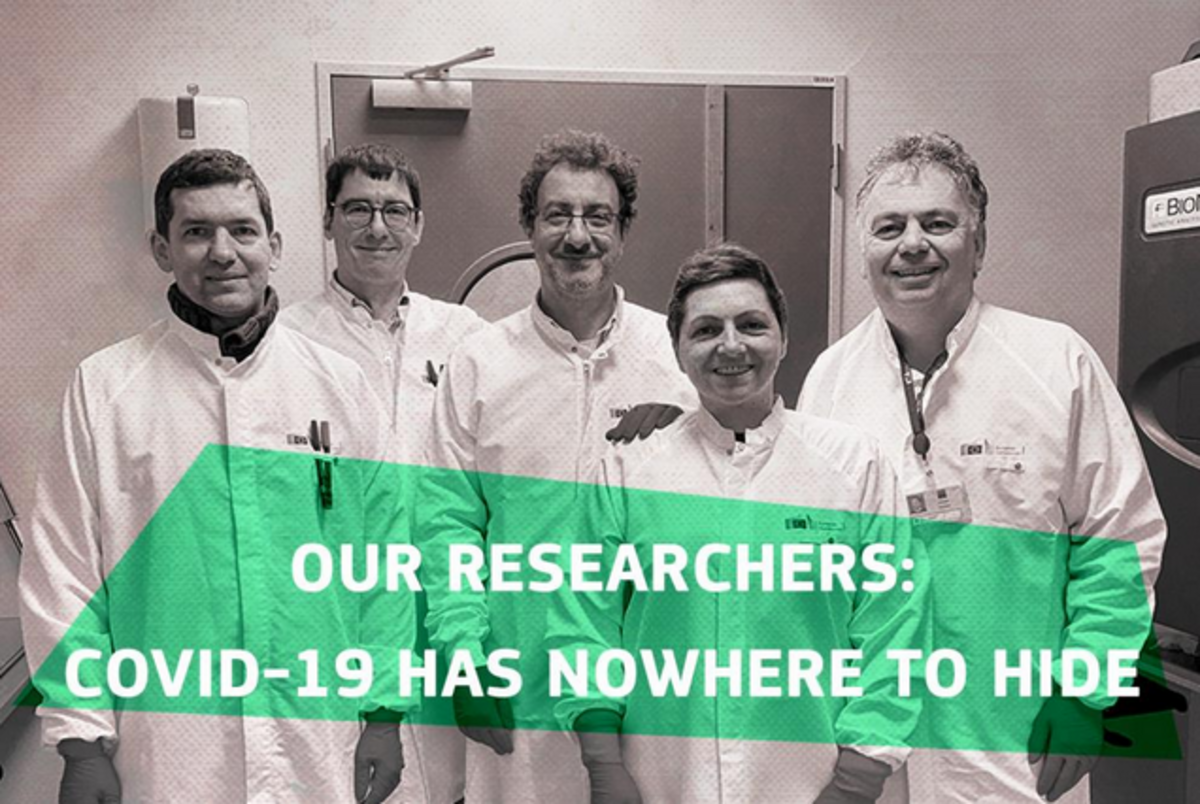Back in early 2020, a new virus, SARS-CoV-2, was spreading across the globe. There was no treatment, testing or vaccine available.
It was all hands on deck and the JRC pooled all its capacities to protect the citizens and help mitigate the disease.
Ensuring accurate laboratory testing
For example, since the start of the pandemic, JRC scientists produced different reference materials. These control material are essential tools to be used by clinical laboratories to assess the correct functioning of their COVID-19 tests. They help to avoid both false positive and false negative test result.
The JRC released in April 2020 the first COVID-19 reference material ever, at that time specifically designed for the Wuhan variant. Vials have been distributed to over a thousand laboratories in the EU and worldwide to test the performance of their analytical assays.
However, the high mutational rate of the virus resulted in multiple variants able to escape detection.
In record time, our scientists developed new tools to detect these new variants, including one for the worldwide circulating Omicron variant. Based on the RT-qPCR technique, the assay allows a very fast identification of Omicron, quicker than sequencing.
Detecting future variants?
Recently, in January 2023, the JRC reached a new milestone with the release of a new method able to detect all current and most likely future variants, both in clinical swabs and wastewater.
This universal detection method is able to detect two specific SARS-CoV-2 genomic regions of the virus, which were found to be very conserved in all variants detected since the start of the pandemic. In other words, two regions that show very few mutations occurred so far in comparison to other parts of the genome.
Moreover, this method comes along with a new reference material that can be kept at room temperature, instead of -20°C as was the case for the previous reference material. This is a very important breakthrough, because the material can be shipped without cooling elements, facilitating its global distribution.
Identifying new outbreaks in wastewater
During the pandemic, the JRC demonstrated with an international group of leading scientists that wastewater surveillance is key in the early identification of new outbreaks and variants of concern.
In March 2021 the European Commission adopted a recommendation asking EU countries to put in place wastewater monitoring for COVID-19 variants, and financially supported the strengthening of EU Member States wastewater monitoring under the HERA incubator programme.
To ensure that the results are used jointly and consistently across all countries, the data is shared using the Digital European Exchange Platform and displayed in a dashboard developed by the JRC.
This approach contributed to the early detection of the virus and its variants across the EU, and ensured a coordinated and informed decision-making in responding to the pandemic. For instance, the Delta variant was found on EU territory as early as March 2021 through the wastewater surveillance approach. Most recently, wastewater monitoring at airports showed the arrival of the Omicron variant, before it was seen by clinical surveillance.
Other infectious diseases: polio, influenza
The JRC is currently exploring the application of the wastewater-based epidemiology for other emerging pathogens and topics of growing concern, such as polio, influenza, antimicrobial resistant microorganisms, and toxic chemicals. As part of Joint Action prepared by the European Commission with Member States under the EU4Health 2023 work programme, the JRC is now targeting the systematic wastewater surveillance at airports and aircrafts, major cities and transportation hubs. An exercise targeting these will be deployed in the 27 EU capitals.
The JRC also participates in an international effort in coordination with WHO and UNEP to develop a globalised approach towards a sewage sentinel system for public and planetary health.
A dedicated session at the forthcoming UN Water Conference in New York (22 to 24 March 2023) targets this subject and the JRC prepares an International event this autumn to follow up on this together with the European Health Emergency Preparedness and Response (HERA).
